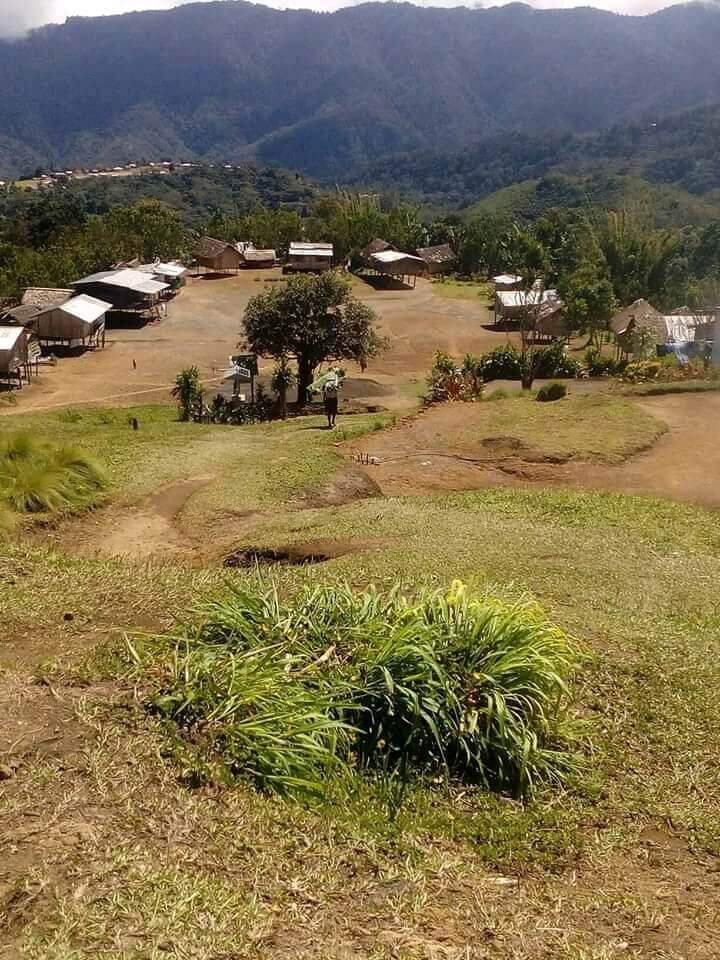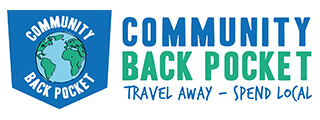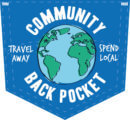Kokoda Track walking tours and visiting PNG
Papua New Guinea and Kokoda Track walking tours first came on my radar when I walked the Great Wall of China to raise money for MS Australia in 2019. Their next fundraising adventure was to walk the Kokoda Track. Something I considered before COVID-19 put a stop to travel as we knew it for a while.
Since then this culturally and geographically diverse country steeped in rich history and home to over 800 languages has peaked my interest. So, when I met Jesse Leta from Indigenous Kokoda Adventures I was keen to uncover his stories, explore his passion for the country and understand what drives his vision.
In this article Jesse generously shares his insights into his country and people. This is a heartwarming story laced with kindness, tolerance, empathy and the value of equity. I hope you enjoy diving into the Jesse’s world as much as I did.
You could run touring experiences anywhere in the world, what is it that you love about living in Papua New Guinea and specifically Kokoda?
There are so many amazing places to see in Papua New Guinea that people aren’t aware of. Most people don’t really know too much about my country and knowing I come from a place with so many different cultures, tribes and traditions make me proud to be from Papua New Guinea, especially the Kokoda Track. The Kokoda Track is my first home, I was born there and so my heart is always with my people and their continuing struggle. The Track itself is historical because of the World War 2 battle fought between the Australian soldiers and the Japanese soldiers. Our forefathers helped the Australian soldiers and that is how the organised treks along the Track began – so people could walk in the footsteps of previous generations.
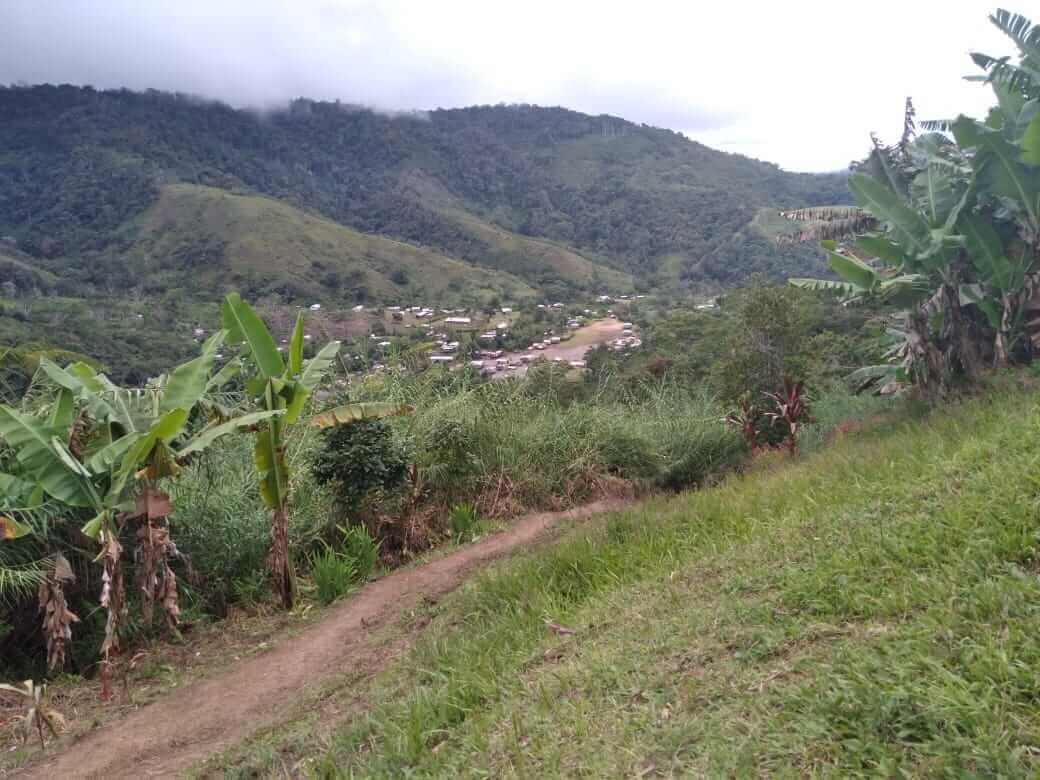
How long have you run Indigenous Kokoda Adventures? Tell us your story.
Indigenous Kokoda Adventures (IKA) started in early 2018 as an idea with the purpose to make life better for the people and communities living along the Kokoda Track. We are the first wholly owned, operated and led tour operator on the Kokoda Track.
Up until now, the tours that operate there have all been foreign owned with very little money staying in Papua New Guinea and even less being paid to the porters and guides the very people who are doing the heavy job of carrying everything along the Track. Without the top- heavy foreign ownership and the various middle levels of wholesalers, there is more money left over to help the villages and communities along the Track with infrastructure upgrading and replacement and more money goes directly to our porters and guides. Similarly to Community Back Pocket we are passionate about advocating against Tourism Leakage.
Our vision is to offer not only a life changing experience for our trekkers, but also employment for our guides and porters that includes some of what most people elsewhere take for granted – decent working conditions. We ensure our porters and guides are paid a fair wage and in addition, we assist financially with their trip back to their villages at the end of the trek (otherwise they have to walk back along the Track and then start all over again walking back to the start of the next trek).
Providing health insurance, our local banking partner is working with us to ensure that our porters and guides have a bank account and understand how to best use it by providing financial advice. We provide proper training in first aid and emergencies and of course now specifically for Covid-19 (which should be mandatory for every tour operator), refresher courses on food safety and preparation as well as training to ensure our porters and guides are aware of how important it is to provide an absolutely authentic engaging experience for our trekkers. And as well, they make it their mission to ensure our trekkers are successful in the quest to complete the Kokoda Track.
Education of the children along the Track is a priority for us. We were fortunate to be able to fund one child for his school year for his Grade 9 education before the pandemic. With Covid-19, fund raising has become even more challenging. Something new and exciting we are doing is we are now working with some of the local coffee growers from the Kokoda area and we have Indigenous Kokoda Adventures branded coffee available for purchase with the net proceeds going to the IKA Foundation to help fund the children’s education. Our coffee is called Kokoda Luti which means heart of Kokoda and is named for our children because these children are the heart of the people that live along the Kokoda Track as well as the future of the communities that are located there.
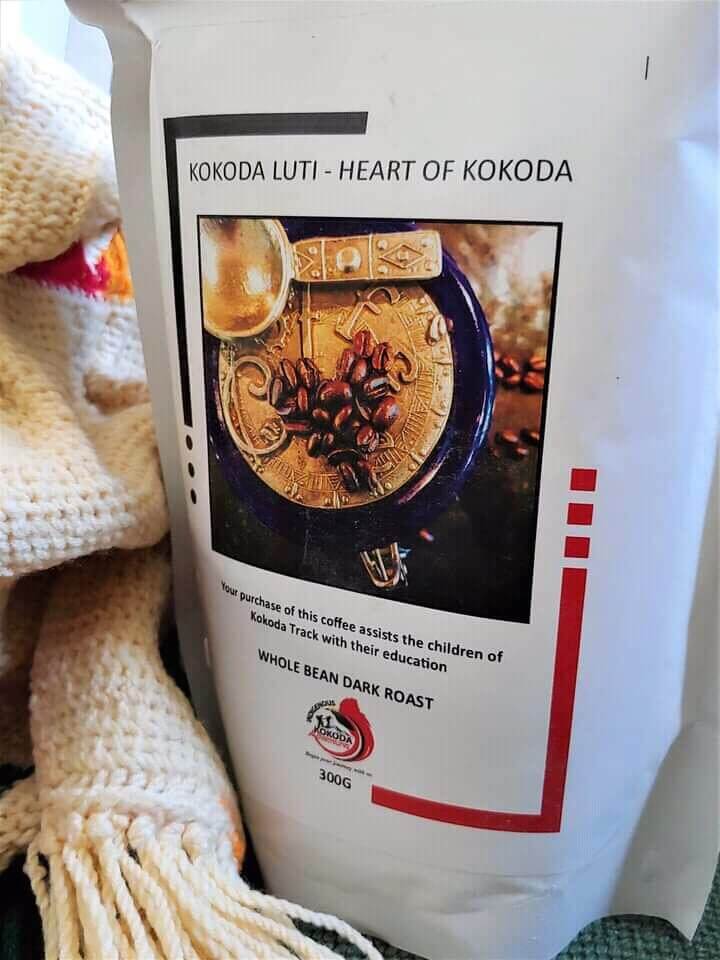
What is the philosophy behind Indigenous Kokoda Adventures?
Our basic philosophy is this: Indigenous Kokoda Adventures is a community focused tour operator with heart and soul and a far-reaching vision to improve the lives of the people along the Kokoda Track.
What is the most memorable tour and why?
Indigenous Kokoda Adventures opened its digital doors in late 2019 and while we had a couple of treks arranged for early summer of 2020, of course with the pandemic and tourism doing a hard stop, we put everything on hold and returned the deposits that had been paid. However, this being said, we have been busy behind the scenes these past two years building relationships and partnerships that cement our commitment and ability to provide a memorable trek for our future trekkers.
One very important relationship that has been there since IKA was first established, is with the village chiefs along the Track. They fully support us and what IKA is doing to support the local people and have promised to provide what we need to make sure our trekkers have a very memorable trip.
Of course, we don’t want to give away all our secrets before we have re-opened our doors, so if any of your readers are curious about what is in store, they should reach out and arrange a trek with us. They will not be disappointed.
Other than run Indigenous Kokoda Adventures what do you like to do in your spare time?
In my spare time, I spend time with my family. We spend time in Port Moresby where we live but we also often go back to our village to see our families there.
When is the best time of year to visit Papua New Guinea in your opinion?
Being from the Kokoda area and from Papua New Guinea generally, it is hard to say when the best time to visit Papua New Guinea is. The weather can be unpredictable and because of all the different regions, weather can be different from one area to the next. I would say the best time to visit is from March through October. Generally, June is the driest season.
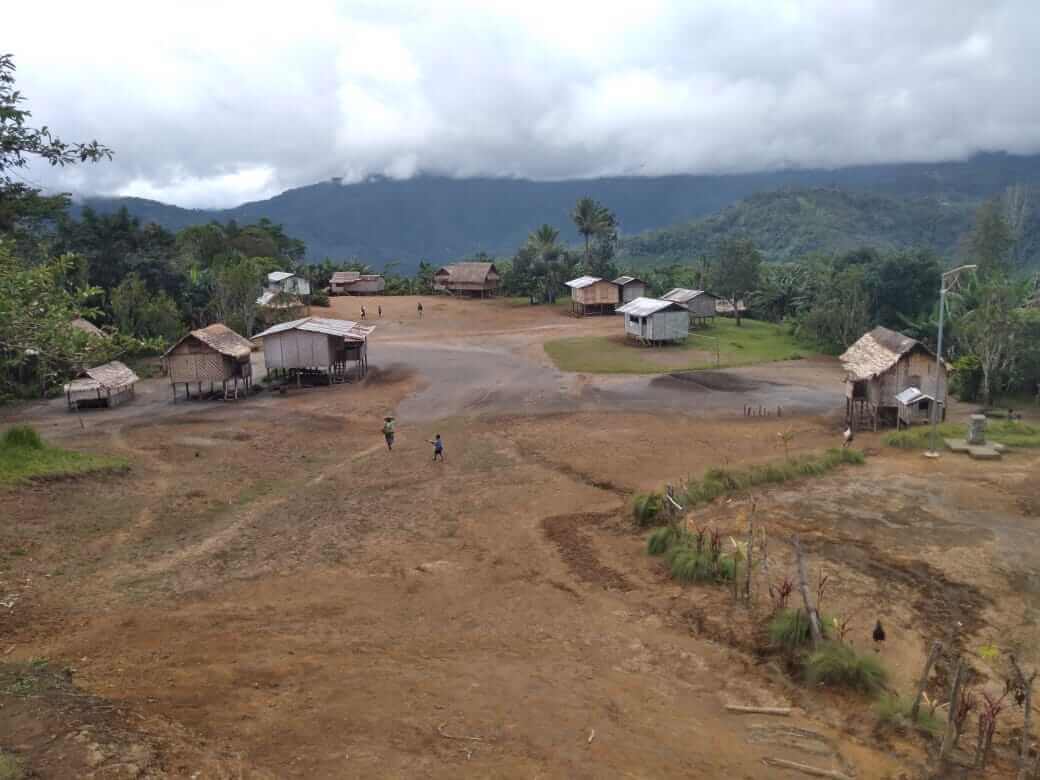
What part of Papua New Guinea would you advise visitors to stay in to get the best from their trip?
Other than spending time with us along the Track of course, I think the most scenic parts of Papua New Guinea are Madang Province, Manus Province, Kavieng and Buka. These places have magnificent sites for diving, surfing and sight-seeing.
What experience would define a stay in Papua New Guinea?
Hands down, getting to know our people and our culture. As a global population we are all surprisingly similar. We all want happiness and prosperity for our families … we all want a better life for our children… we all wish for good health… really and truly, other than all the other little inconsequential things like, what kind of coffee do I feel like today? We all basically want the same things in this life.
There are so many ways to connect with people from other cultures, and when the culture is so far away and seemingly foreign and different, we all need to remember that beneath our skin colour and our hair type, all of our hearts beat the same way. We all feel love. We all feel sadness. We are all human.
What does a perfect day look like to you in Papua New Guinea?
Being so focused on Indigenous Kokoda Adventures and wanting to support our communities there and being from Kokoda area, a perfect day for me would be working on something that will make life better for the people, my people, that live along the Track. Sharing part of my day with my family and playing with my children would be the perfect way to end the day.
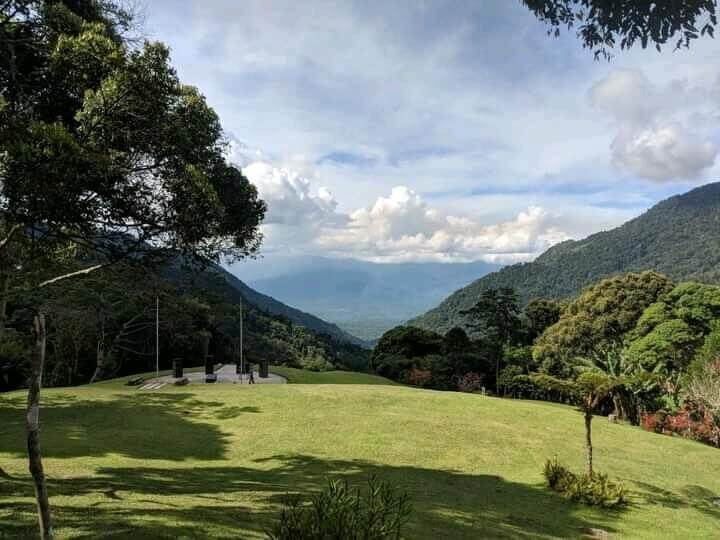
Where is your favourite place to eat that’s locally owned?
There are so many options available but my favourite place to eat local food is at The Sanctuary Hotel in Port Moresby.
What are Papua New Guinea’s hidden secrets? What do the locals not want tourists to know, so they can keep it to themselves?
The traditional culture we have is very important to us and involves sing-sings and dancing, celebrations and feasts. These are all a part of keeping our culture intact and we showcase some of this during annual festivals, like pow-wows held in Indigenous cultures in other parts of the world. But some of the smaller scale day to day traditions, are not normally shared with people from outside of Papua New Guinea. That is why a trek along the Track with us would a really great way to learn about these less visible cultural ways.
Are there any local bands or musicians you would suggest visitors look up and where’s best for live music?
Papua New Guinea has many local bands and musicians, and they perform live in clubs and also for celebrations and big occasions much like everywhere else. The best time to see our local bands and musicians perform traditional dances is during the annual culture events, shows and festivals as per PNGTPA Show calendar.
If you were a Papua New Guinea visitor what would be your top tip not to miss?
Obviously, a trek along the Kokoda Track with us to start followed up by a trip to one of the provinces I mentioned above to take advantage of our pristine water for all kinds of snorkelling, kayaking, scuba diving and surfing. We are very proud of what we have here and what Papua New Guinea has to offer.
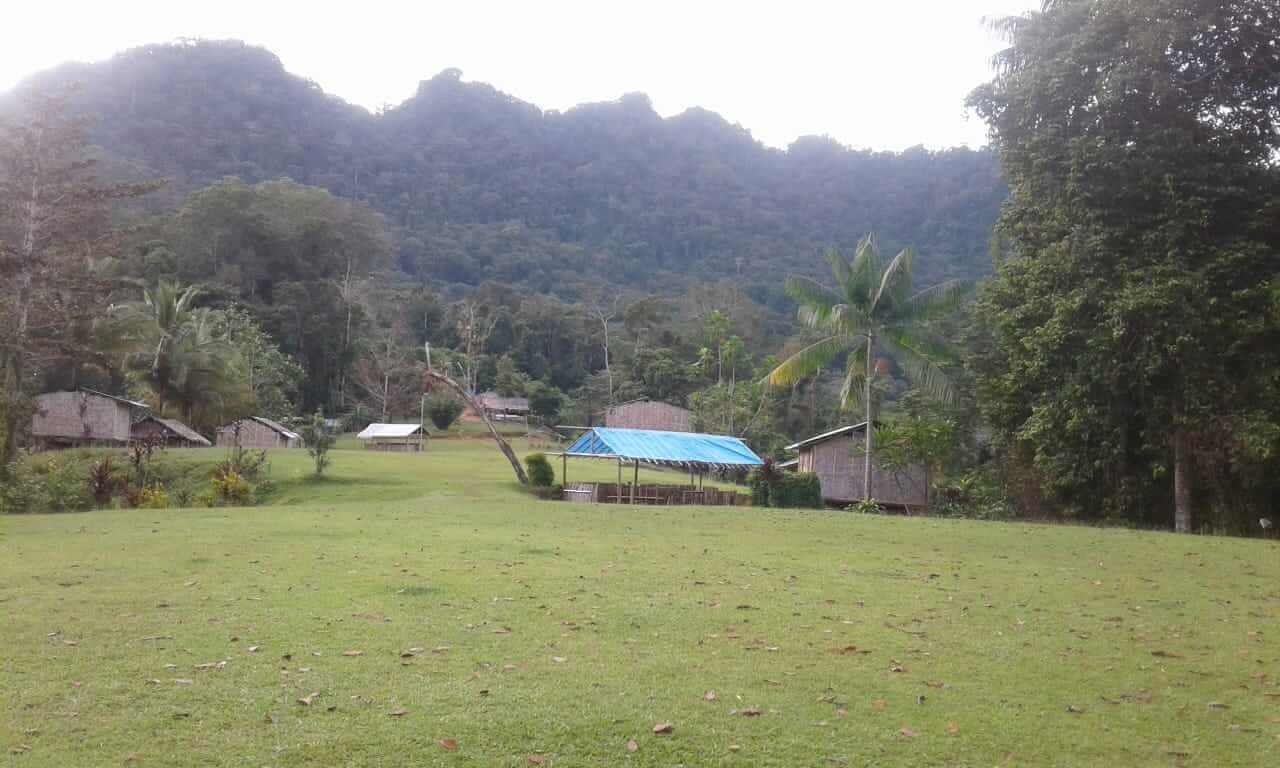
What cultural/behavioural advice would you give that would help visitors to Papua New Guinea?
As in many other countries, customs and standards may be different from what visitors are used to at home. Please be respectful and ask first if you would like to take a photograph of someone and no photos are to be taken of any building or structure that is of military significance. Of course, dressing appropriately is a very respectful way to visit our country and our people.
I also wish people wouldn’t automatically think that Papua New Guinea is too foreign and far away and scary. There are many stories in the media about how dangerous it is here but not every part of the country is like that, just like it is anywhere. There are parts of cities where it’s not safe to go and to be fair as a foreigner you may not want to walk around by yourself at night but that would be the same for many other places in other countries. Because it’s a different culture, sometimes people may not be comfortable in places such as PNG that are different from what they are used to. But people should try to understand that place of uncomfortableness is where your humanity grows and where real connections are made with other people.
Anything else to mention that would help a visitor get the most out of a stay in Papua New Guinea?
Remember to pack your flexibility and patience. As a visitor, you may find that many places and things are not as they are at home and may be far less sophisticated than what you are used to. Delays are normal and sometimes itineraries need to be changed. We have no control over this and packing a sense of humour and open mind will help a visitor get more enjoyment from their stay here.
What’s next on your bucket list?
There really are so many great places to see but I think I’d like to travel to Canada in the winter to experience the snow.
